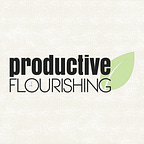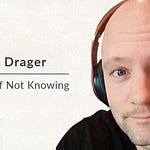Jeffrey Davis is the founder of Tracking Wonder, a consultancy that mentors entrepreneurs, creatives, and brands to have influence with integrity. In his third appearance on the show, he and Charlie discuss why it’s so hard for leaders to stand for something, even after they’ve figured out what it is they stand for. It’s not just the fear of failure or being wrong. This episode is a continuation of ideas presented in a previous episode - to hear more after this, check out Episode 64.
Key Takeaways:
[3:25] - Some of the fears people have about standing out with their message is that they may be attacked, or lose clients and customers. The second one, more subtle, is that once you take a stance and it’s said out loud, the expectation is that you have to deliver on it.
[5:28] - With regards to the first fear, it is often a false belief that the trolls and haters will all of a sudden pop up and latch on to you. You might end up alienating a few people in your audience, but there are many other people that won’t notice or care. If you do attract opposing views, rather than viewing it as battle, use it as an opportunity for conversation. People who question a view or are curious can become your allies if you engage with them in a certain way.
[10:09] - Owning a message or taking a stance doesn’t mean that the ideas or stances are politically loaded or controversial. Sometimes, just the idea of taking a stance is controversial in itself . This is especially applicable in the corporate world to intrapreneurs and people working within corporate organizations.
[13:30] - There are certainly conversations to be had about taking a stance in the corporate world, but there are other topics in that realm that aren’t socially loaded. In terms of productivity, if at a certain point in your development you’re not finding places that are controversial in the sense that different experts disagree on them, you might need to do some more deep exploration to develop your own opinions to help you stand out and make an impression. Opposing ideas can create new ideas.
[16:26] - You can begin to develop your own thought leadership by mining and leveraging your irritations. You can take an idea that’s out in the world that you find irritating, and come up with the opposing idea that you want to contribute. This requires some deep work - owning your message is not just what you stand for, but what you stand against as well.
[19:25] - One of the reasons people fear standing out is because they don’t want to be the outlier or be ostracized. However, with the myriad of ideas in the world today, there are other people that are bound to share those beliefs or take the same stance. It is beneficial to surround yourself with a small group of people where you can try out your own ideas (and others).
[21:15] - Some of Jeffrey’s advice is to read what other people (professors, leaders) have to say about a certain topic, and then see where you can add your verse to the conversation. Start testing out your ideas and find where you can gain traction. That is how you begin to stand out by trial and error or experimentation.
[26:58] - Another reason people are afraid of standing out is because they might be wrong, in two ways: if what you thought was true is not true, or what you thought mattered most to you has changed. But if you’re wrong, that’s okay! You can take a stance and be right, or take a stance and be wrong, but both provide opportunities for exploration and growth. The only trajectories not worth taking are to not do anything, or perpetuate what you already know.
[30:15] - One thing Jeffrey suggests for people with a plethora of ideas is to distill your ideas down to a smaller number. When you start to narrow what you’re going to be about, you’re forced to go beyond just your initial opinion.
[32:20] - Another fear is that people don’t want to stand for a message because they don’t want to lock themselves into an idea box. When you find yourself fatigued with an idea or what you are associated with, tap in and see what’s fresh, and how you could turn that into a new stance.
[37:30] - As human beings, we have complex dimensions of being in the world, and we should have the permission to be our complex selves. People want complexity now, versus a generic brand that blends in.
[39:15] - As you stand for more and begin to produce more, you have to become a curator as well as a creator. The fears that have been discussed may stem from wanting people to see the rich person that you are. However, it’s important to note that your work does not encompass all of who you are. It can be a vehicle of expression, but there’s often more that is not represented. In addition, you may choose to represent or incorporate some aspects of yourself into your work, while intentionally leaving out others.
[47:00] - Developing constraints in our work allows for depth and experimentation within those constraints. This can allow you to hone your work and create a niche for it. Go in depth in certain areas, rather than trying to cover multiple areas.
[52:25] - Charlie and Jeffrey talk about the importance of creating for the future. Sometimes, it can be hard to set expectations for immediate response, but the work that stands out will continue to be relevant in the long-term.
[54:25] - If you’re not standing up for your message, then other people are only hearing counterproductive messages. Your silence only perpetuates whatever conversation you don’t like.
[56:45] - Jeffrey’s invitation to listeners: draw a chart with for and against, and at the top write what it is that you want to be known for. Under “for,” list variations and values that relate to the core message. On the right side under “against,” list the counter-messages and values that you’re against that relate to that core message. He challenges listeners to share something about that in the next 7 days.
Mentioned in This Episode:
Productive Flourishing Podcast Episode 64: What Will You Stand For This Year?












